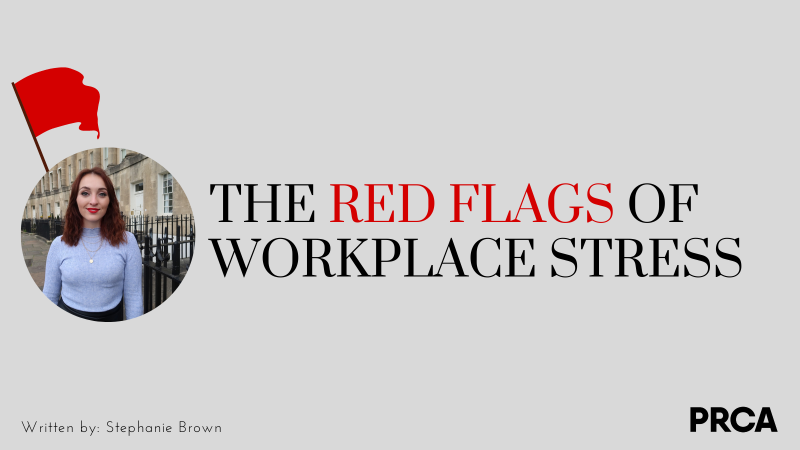
Workplace stress is increasingly becoming an issue for employees up and down the country. Indeed, according to the CIPD, in 2021 nearly four out of five reported to have taken leave from work due to stress. Additionally, the CIPHR found that nearly one in ten of us feel stressed every single day.
While short-term levels of stress, especially when it can be counteracted with relaxation and the ability to ‘switch off, pose a low level of risk to an individual, being in a continuous state of heightened emotion can have serious implications for a person’s mental and physical wellbeing.
From inhibiting the ability to sleep well, muscular pain, high blood pressure, and headaches to heightened feelings of anger, tearfulness and low self-esteem, stress can very quickly become a serious, life-changing issue if not managed properly.
But how does this relate to PR? While an incredible sector to be part of, it is extremely fast-paced, and practitioners may find themselves spinning many plates at once. Whether you are an employer, colleague or even just looking out for yourself, it’s crucial – especially in this current age – that the signs of stress in an individual or team are spotted before it begins to spiral out of control. More importantly, if the signs are spotted, procedures must be put in place promptly to help get those affected get back into a healthy place.
So, what could you be looking out for?
A drop in productivity
High levels of stress, especially for a long period of time, can affect the standard of work for those suffering. Think about it like running a never-ending marathon; there’ll come a time when the body and mind become exhausted, and they simply won’t be able to perform at their best. The same analogy can be applied to the workplace.
Continuous unexplained absence
Sadly, with the continued taboo that surrounds mental ill-health, 35 per cent of employees have admitted to lying about a sick day, with the most common reason being stress. Additionally, stress can cause serious physical side effects, from panic attacks and chest pains to sickness and headaches. If a member, or members, of your team, are taking regular absence days, ensure you take the time to check in with them and make sure there’s nothing more that needs to be explored.
Worrying or out of character behaviours
Stress can cause an individual to change, behaviourally, over time. They may have shorter patience with those around them or they may start to show signs of risk-taking behaviours such as smoking, excessive alcohol intake and potential drug use. They may also appear to be impulsive, or they may begin to withdraw.
Of course, mental fitness is as an individual to a person as their fingerprint, so the signs and symptoms of stress can differ greatly from person to person. However, if you begin to spot the signs of stress creeping into the workplace, it’s important to act quickly.
What can be done to help prevent workplace-related stress or support an individual who may be struggling?
Regularly check in with staff
It can be easy to underestimate how important a quick 15-minute chat is, but for one person it could be the support they need to open up and share how they are feeling, halting a downward spiral in its tracks.
Offer anonymous feedback opportunities
It’s not always easy to share with someone face to face how you are feeling, especially in a working environment. For some, an anonymous way of opening up and sharing concerns, such as a survey, can be the best way to put an issue on a manager’s radar.
Create an open-door culture
While conversations around mental health are certainly far more positive than they were only a few years ago, there’s still stigma attached to mental ill-health. It’s crucial that senior teams work hard to break down these barriers and create an honest, transparent workplace that is accepting and understanding of individual needs.
Look after each other
PR certainly peaks and troughs when it comes to potentially stressful episodes. Crisis communications or large-scale campaigns are key examples. So, when these times do come around, make sure you are looking after one another. Small gestures such as going on a group walk at lunchtime or celebratory drinks at the end of the week can make a huge difference to team morale.
Whether personally or professionally, stress will be something that affects us all in one guise or another over our lifetime and, if not managed well, it can be seriously detrimental to our physical and mental health. Sadly, stress continues to be a taboo subject, but it’s time to change that. This Stress Awareness Month, talk to your employer, your employees, your colleagues, and your friends about how you can tackle stress together, one step at a time.
